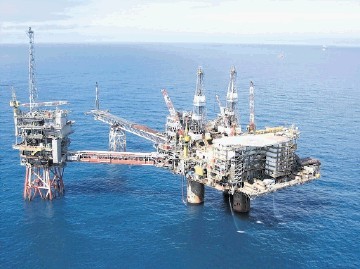
As the region has matured UK Continental Shelf production has progressively fallen – approximately 6% per annum between 2000 and 2010.
Last year, production plummeted 19% following a disastrous budget. In fairness, however, the Treasury has engaged with the industry after “constructive” post-budget feedback and a number of measures were introduced at the 2012 “Budget for Growth”.
These include increasing the current Small Field Allowance as well as the introduction of a new allowance targeting West of Shetland deepwater fields.
More recently, plans for a Brown Field Allowance (BFA) were announced which will reduce the tax rate from 62% to 30% on profits of up to £500million from certain new investments on existing North Sea fields.
It would appear that the conciliatory actions taken by the Treasury to promote investment are beginning to bear fruit. Just last month Shell confirmed that it had reached an assets deal with Hess for $525million which will lift the super-major’s production in the Beryl fields area from 9,000 barrels oil equivalent per day (boepd) to 24,000 boepd.
With increased investment, Shell believes field life may be extended for up to as much as two decades.
The announcement by Shell echoes that from BP which has extended the life of its Andrew platform by a further decade. The installation of a new processing unit will enable the company to access the Kinnoull field – one of three reservoirs being developed.
The Government also recently gave the green light to a £1.6billion plan from Talisman Energy to redevelop its MonArb group of fields with a target of increasing recovery from the area by a further 100million boe. Talisman credited the BFA as key to the unlocking of the project.
There was similarly positive news with the results of the 27th Licensing Round. A total of 224 applications were received covering 418 blocks of the UK Continental Shelf. This is comfortably the largest number since offshore licensing began in 1964.
Whilst the results showed continued interest from the usual big players such as Total, the diversity of successful companies is extremely encouraging. In my last article (August 2012 edition of Energy) I highlighted some of the financial constraints facing small and mid-sized exploration and production companies, but also the opportunities available for those with solid funding bases in place. And so perhaps it was no surprise to see EnQuest, Faroe Petroleum and Parkmead Group extending their interests via the 27th Licensing Round.
EnQuest, which is the largest independent producer in the North Sea, was offered 11 of the 14 licences applied for with new blocks close to its existing portfolio of assets including the Kraken and Broom fields.
Similarly, Faroe Petroleum was awarded new exploration licences close to existing Aileen and Grouse prospects in the West of Shetland.
The round underlined Parkmead’s growing ambition. The company was awarded six licences across 25 blocks with success West of Shetland and to the West of Scotland.
These should enable the company to considerably increase its UK assets and continue its rapid reserve base growth after earlier acquisitions this year.
It was also interesting to note Valiant Petroleum’s success with five blocks awarded, three of which will be 100% owned. This good news comes on the heels of a relatively poor exploration record of late and an announcement from the company in early September that it was launching a strategic review, to include any and all potential sales, mergers, and farm-ins.
Clearly, all of the companies involved will need to undertake detailed analysis of their respective acreage before we are able to tell whether increased exploration activity results.
While production numbers have undoubtedly waned, recent positive announcements from the government and industry alike would appear to indicate that dire warnings of a North Sea slowdown have been overdone.
Stuart Lamont is investment manager at Brewin Dolphin in Aberdeen
Disclaimer
Past performance is not a guide to future performance.
No investment is suitable in all cases and if you have any doubts as to an investment’s suitability then you should contact us.
The opinions expressed in this article are not necessarily the views held throughout Brewin Dolphin Ltd. No Director, representative or employee of Brewin Dolphin Ltd accepts liability for any direct or consequential loss arising from the use of this document or its contents.
We or a connected person may have positions in or options on the securities mentioned herein or may buy, sell or offer to make a purchase or sale of such securities from time to time. In addition we reserve the right to act as principal or agent with regard to the sale or purchase of any security mentioned in this document. For further information, please refer to our conflicts policy which is available on request or can be accessed via our website at www.brewin.co.uk
Recommended for you
